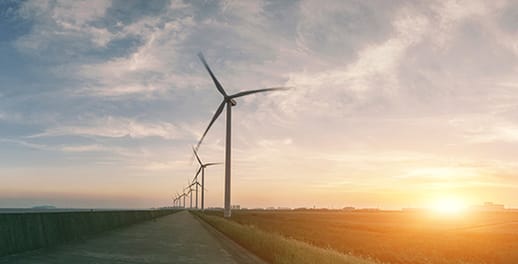MA: And it's interesting to see how the Chinese and the US are collaborating on sustainable finance bringing them close together at a time when geopolitically relations do seem tense.
Saliem, one could certainly be forgiven for thinking that global markets are finally mobilizing to solve humanity's greatest challenges from climate to poverty.
We look at ESG assets under management, they've been growing at 30% for five years, they now total 37 trillion US dollars. Meanwhile, a fifth of the world's 2000 largest public companies have set net zero carbon targets others are racing to do so too.
But BlackRock's former head of sustainable investing has described ESG as a giant societal placebo incapable of driving real change. And I think many corporate net zero pledges are being called out for lacking any credible action plan for relying on ineffectual offsets and also for pushing the goal out by decades.
Do these commitments amount too much when we look at the broader politics of climate change and what's been committed to?
SF: I think the only good news is that definitely the world is seeking to move towards a decarbonized economies, particularly the major economies, and there are very good reasons for that.
Partly, it's got to do with the high dependency on fossil fuels, which has to be lowered there's industrial new industrial capability that can come on the back of decarbonisation, particularly, if you consider the sort of attempt to surge production of hydrogen globally. And we've got renewables costs coming down that's also driving by the way, these new asset classes, and investment in them.
But I think the real nub is how fast can countries move and are willing to move. There's big talk about the advanced economies, particularly the Western liberal economies. But if you look at the nationally determined contributions, it's still far short, right?
So post COVID, we still see emissions rising, there might be coal phase out in some of these countries, and no new commitments to coal but there's intensification of gas, etc.
And emerging economies and particularly countries like China don't want to be pushed into a corner where economic security and energy security is going to trump climate change. And we've seen the crisis in China with power cuts, etc, and cost of electricity going up in Europe.
So these transition discussions have to be based on two main political things, realism of what that means within countries and whether the constituencies even in countries like Germany, and Europe, and so on, have the appetite for a rapid transition, because there are cost implications for a very disruptive process. So that's the one issue.
The second thing is that there is no real big cooperation happening between the two big emitters, particularly the US and China, which can actually solve the world's problems, they also have the financial resources to do that.
The US on one hand is trying to push China to do harder commitments and faster commitments, including the rest of the world. But China is very careful about how it phases out coal, so it has offered to not finance any coal outside of China but there's no real commitment to stopping rapid coal deployment in China itself so there's, in fact, some gearing up going on.
And the US has a big problem of actually funding its new climate initiatives, because internally domestically it doesn't have the support and two senators are actually holding it at ransom at the moment, in their inability to pass this.
So this is the real situation. This is the real politics. It's not, you know, a great expectations in Charles Dickens novel. This is, this is how the world is going to actually have to deal with this transition in stops and starts.




